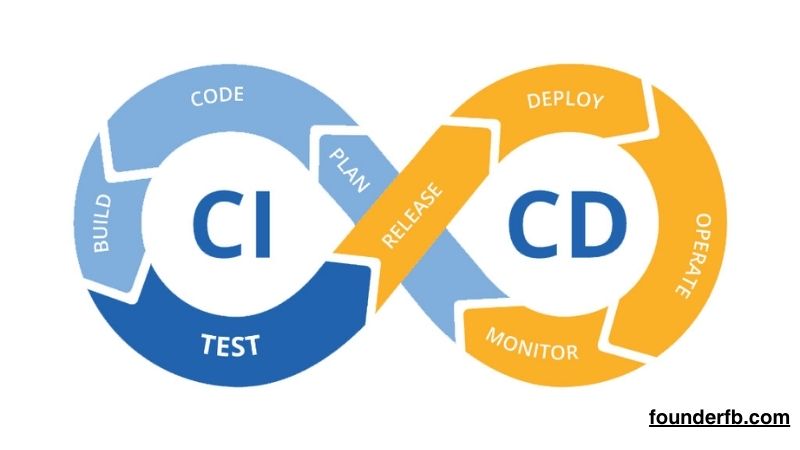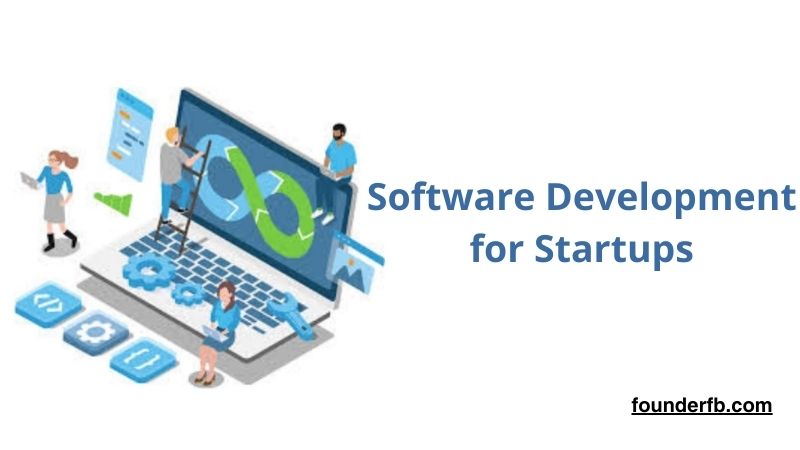In the dynamic landscape of modern business, software development for startups has emerged as a pivotal driver of innovation, growth, and competitive advantage. From streamlining operations to delivering exceptional user experiences, startups rely on software solutions to carve their niche in the market and scale their ventures. However, navigating the complexities of software development amidst the pressures of limited resources and fierce competition can be daunting. In this article, Founderfb delve into the essential strategies that startups must embrace to excel in software development and propel their businesses forward.
Software Development for Startups
1. Identify Your Minimum Viable Product (MVP):
At the heart of every successful startup lies a compelling Minimum Viable Product (MVP) – a lean version of the product that addresses the core needs of the target audience. The MVP approach to software development for startups emphasizes rapid iteration and validation of ideas through real-world feedback. By focusing on delivering essential features that solve a specific problem, startups can minimize time-to-market and mitigate the risk of investing resources in unnecessary functionalities.

2. Choose the Right Technology Stack:
Selecting the appropriate technology stack is paramount in laying a solid foundation for software development for startups. Whether it’s determining the optimal programming languages, frameworks, or databases, startups must align their technology choices with their project requirements, team expertise, and scalability goals. By leveraging the right tools and technologies, startups can optimize development efficiency, enhance product performance, and facilitate seamless integration of new features as the business evolves.
3. Agile Development Methodology:
Agile development methodologies, such as Scrum or Kanban, offer startups a flexible and iterative approach to software development. By breaking down projects into manageable tasks and embracing continuous feedback loops, Agile empowers startups to adapt to changing market dynamics, prioritize development efforts, and deliver incremental value to customers. The iterative nature of Agile development fosters collaboration, transparency, and accountability within cross-functional teams, accelerating the pace of innovation and product delivery.
4. Cross-Functional Teams:
Effective collaboration across cross-functional teams is indispensable in software development for startups. By bringing together diverse skill sets, including developers, designers, product managers, and quality assurance engineers, startups can foster creativity, mitigate knowledge silos, and ensure alignment between technical implementation and business objectives. Cross-functional teams enable startups to rapidly iterate on product ideas, identify market opportunities, and deliver compelling solutions that resonate with users.

5. Prioritize Security and Compliance:
In an era marked by increasing cyber threats and stringent regulatory requirements, startups must prioritize security and compliance in their software development endeavors. Implementing robust security measures, encryption protocols, and access controls safeguards sensitive data and instills trust among users. Moreover, startups must adhere to relevant regulatory frameworks, such as GDPR, HIPAA, or PCI-DSS, to mitigate legal risks and protect the privacy rights of their customers.
6. Scalability and Performance:
Scalability and performance are critical considerations in software development for startups, especially as businesses strive to accommodate rapid growth and surging user demand. Startups must design scalable architectures that can seamlessly scale with increasing workload and user traffic. Techniques such as horizontal scaling, microservices architecture, and distributed caching enhance system performance and resilience, ensuring optimal user experience even under high loads.
7. User Experience (UX) Design:
User experience (UX) design lies at the intersection of aesthetics and functionality, shaping the way users interact with software products. Startups must prioritize UX design to create intuitive interfaces, seamless workflows, and memorable user experiences. By conducting user research, prototyping, and usability testing, startups can gain insights into user preferences, pain points, and behaviors, thereby refining their product design and enhancing overall satisfaction.
8. Continuous Integration and Deployment (CI/CD):
Continuous Integration and Deployment (CI/CD) practices streamline the software delivery pipeline, enabling startups to automate build, test, and deployment processes. By adopting CI/CD pipelines, startups can accelerate time-to-market, improve code quality, and minimize manual errors. Automated testing, version control, and deployment orchestration facilitate frequent releases, allowing startups to iterate rapidly and respond to market feedback with agility.

9. Iterative Improvement Based on Feedback:
Feedback-driven development is a cornerstone of software development for startups, empowering businesses to iterate and innovate based on user insights and market feedback. Startups must solicit feedback from early adopters, analyze user metrics, and iterate on their product iteratively. By embracing a culture of continuous improvement, startups can refine features, address pain points, and stay ahead of competitors in an ever-evolving marketplace.
10. Plan for Maintenance and Support:
Sustainable software development for startups extends beyond the initial launch phase, encompassing ongoing maintenance, bug fixes, and customer support. Startups must allocate resources for post-launch activities, including monitoring, troubleshooting, and performance optimization. Proactive maintenance and timely support not only enhance product reliability but also foster customer loyalty and retention, driving long-term success and growth.
11. Embrace Lean Startup Principles:
Central to the ethos of software development for startups are the principles of Lean Startup methodology, emphasizing validated learning, rapid experimentation, and iterative product development. Startups must adopt a lean mindset, validate assumptions through market experimentation, and pivot when necessary to optimize resource allocation and maximize impact. By embracing uncertainty and embracing a culture of experimentation, startups can navigate the unpredictable landscape of entrepreneurship with confidence and resilience.
Sum Up
In conclusion, software development for startups demands a strategic approach that balances innovation, agility, and user-centricity. By embracing best practices such as Agile development, user experience design, and continuous iteration, startups can leverage software as a catalyst for growth and differentiation in the competitive marketplace. As startups embark on their software development journey, they must remain adaptable, customer-focused, and committed to delivering value-driven solutions that resonate with their target audience. With the right strategies and mindset, startups can harness the transformative power of software to drive sustainable growth, disrupt industries, and achieve enduring success.



